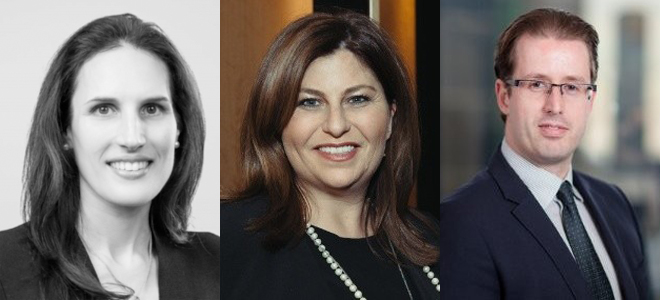Fund governance: the importance of communication and agility
In times of crisis, robust fund governance is vital, according to Sarah Cornelius, a Frontier Advisors consultant. She quizzed two fiduciary investors and another Frontier consultant on governance issues during one of last week’s sessions at the annual Frontier conference (on July 21), held virtually over three weeks this year. They discussed the impact of COVID-19, lessons learned and what is likely to happen going forward. Communication was a common theme.
The three panellists – Brett Chatfield, deputy CIO of Cbus; Sandi Orleow, trustee of Local Government Super and investment advisory board member of ACT Treasury; and, Natasha Kronouer, a principal consultant and head of governance advice at Frontier – each felt the impact on their own organisations, such as the transition to working from home and the mental and physical support given to staff had been handled well, considering the speed with which action was required from early March.
In each case, the number of discussions by various committees, increased, including the number of out-of-cycle reviews. They all emphasised the importance of delegated decision making for day-to-day operations and business continuity in the environment. “We had very regular discussions with the chair of the investment committee (Stephen Dunne, a former chief executive of AMP Capital),” Chatfield said. The fund was unlikely to make any major changes to its governance framework as a result of the pandemic but it was “always looking for refinements”, he said.
Sandi Orleow said that each organisation had a different way to set up its crisis management team. “One organisations I’m involved with would meet daily. There is a lot of discussion about investments,” she said. “When the board’s meeting monthly it’s important to engage more frequently.”
Liquidity
On the increase in member switching between investment options and increased withdrawals and the early withdrawal scheme, liquidity was an immediate focus for the funds and their consultant. Chatfield said: “Liquidity is always a focus for us. We went into the crisis a little bit underweight liquids, but this was never a concern. Going through the second tranche of early withdrawals now it’s still not a concern but we’re monitoring it closely. We have a cash meeting every night. We also did a lot of scenario work before the early release scheme took effect. We’re very comfortable where we are.”
According to Sandi Orleow, what a fund wants is no surprises. “Fortunately, the market learned some lessons from the GFC. This was an area which was pretty much addressed and communicated… And with interest rates so low, you still have to worry about the cash drag.”
Frontier’s Natasha Kronouer said that liquidity had been one of the consultancy’s highest priorities in its client analyses. “We updated our liquidity modelling to reflect possible withdrawals, early access and switching. We ensured that our investors had the proper governance in place to act quickly, such as the ability to act on circulars and access electronic signatures. We aimed to ensure the clients had an adequate liquidity buffer.”
Valuations
Valuations of unlisted investments was another issue, which still requires broader, industry wide, discussion. Cbus accelerated its valuation processes because of the volatility and made adjustments to its benchmarks and market proxies in March. This involved a considerable amount of work with managers and internal Cbus staff, which went up the investment committee.
Orleow said that some super funds had specific triggers for out-of-cycle valuations. “We’re now getting near the end-of-year valuations and we’re trying to maintain the equity concept. The industry should look at valuations as a whole from the members’ perspective,” she said. “It’s an interesting issue that the industry needs to contemplate and of which the regulator is aware.”
The issue is that for entering and exiting members’ the prices at which their decisions are enacted can be very important to them, although probably not so important for the big rump of members in the middle. Kronouer said that prior to COVID Frontier assess valuation policies with its managers annually. But, since COVID, the firm had been having discussions with managers about whether it was appropriate for out-of-cycle valuations. “We prefer the managers or [specialist] valuers to do the valuations but for funds which have decided to do intra-cycle valuations, they have to make sure their processes are clear,” she said.
The future
Cbus has done an initial assessment of what of its actions had worked and what had not. “It’s really just an ongoing enhancement of our governance,” Chatfield said. “More broadly, we had always been focused on performance attribution. We’re in the process of moving to a new external provider to assist us with that.”
Orleow said that investment governance had proved its worth so far in the crisis and would continue to evolve. But a market which included low interest rates, volatility, member switching and member equity would still need to be grappled with going forward.
Kronouer reiterated the lesson of the importance of good communications, especially when some decisions were being made very quickly. “Funds also need to check their governance around risk and their risk appetite,” she said. “They [need to assess] whether attitudes and behaviours around risk need to change.”
– G.B.











